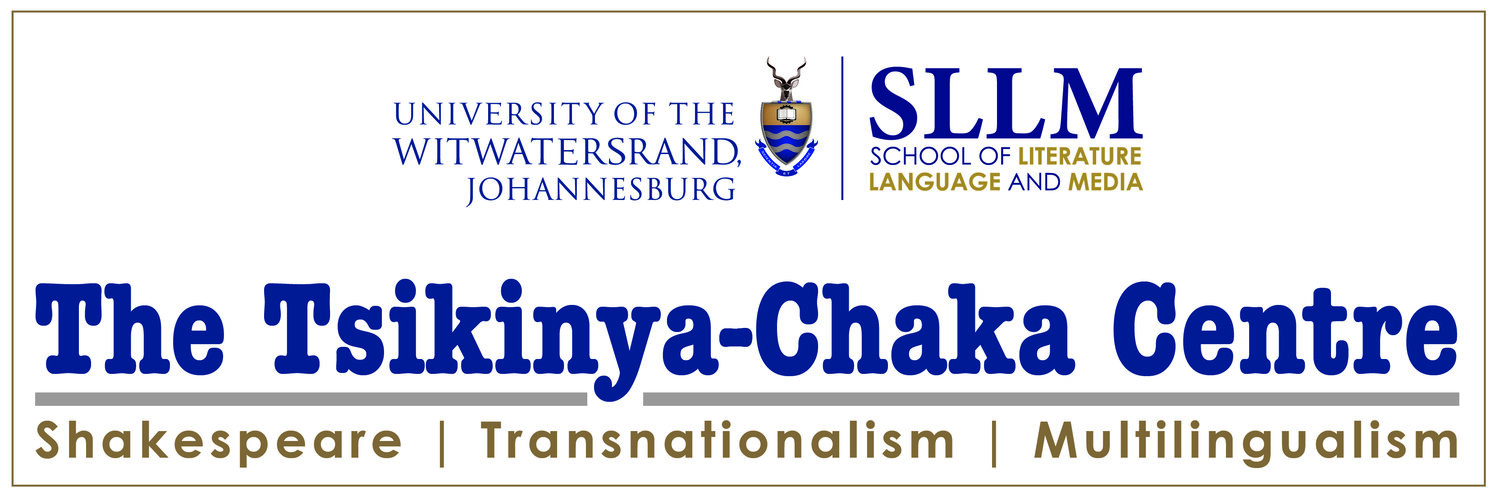Hamlet and Palestine
When writing his weekly arts column for South Africa’s Business Day, TCC director Chris Thurman tries not to wear his “Shakespearean” hat. Sometimes, however, that policy is overcome by events - as happened this week, when he was tasked with covering an NT Live screening of Jack Thorne’s play The Motive and the Cue.
I sat in a darkened movie theatre, entranced by Richard Burton and John Gielgud – or rather, by Johnny Flynn and Mark Gatiss, who were playing these two iconic actors on the stage of the National Theatre in London. The production was The Motive and the Cue, directed by Sam Mendes, filmed last year for the NT Live series and on Ster Kinekor screens this week in Johannesburg, Pretoria, Cape Town and Durban.
Its premise is an historical event: a Broadway production of Hamlet starring Burton in the title role at the height of his fame, when he and Elizabeth Taylor were the tempestuous glamour couple of the 1960s. Gielgud, who had given one of the definitive post-war performances as Hamlet, finds his star is on the wane; he is supposed to be directing the show but Burton will not take direction.
The play’s title comes from one of Hamlet’s soliloquies. The Danish prince has just seen an actor deliver a tearful monologue and wonders how that actor would perform if he had the same “motive and cue” as Hamlet – a man whose uncle killed his father and married his mother. The phrase spurs us to think about Burton and Gielgud’s diverging reasons for undertaking the production, and their differing approaches to theatre: they represent two generations, two styles, but also two class backgrounds.
The Motive and the Cue is an absorbing production, yet the world outside the cinema intruded on my thoughts. Hamlet has that effect. It can seem like a play with a self-involved protagonist, but it is also deeply political; it draws our attention to public life, and especially to places beyond Shakespeare’s Elsinore where citizens may feel, as Hamlet does in Denmark, that they are living in a prison. Kashmir. Soviet (or Putinist) Russia. Zimbabwe. Above all, Gaza – recognised for decades as an “open-air jail”, now the site of a genocide, the dark heart of Israeli atrocities that have expanded across Palestine and into Lebanon.
References to Hamlet have almost been commonplace in journalistic thinkpieces about the plight of the Palestinian people over the years. The connection is more powerfully drawn in Isabella Hammad’s 2023 novel Enter Ghost. Before that there was the 2017 documentary Hamlet in Palestine. In the 1980s, Hammad reminds us, Hamlet was banned in the West Bank because the line, “to take arms against a sea of troubles / And by opposing end them”, was viewed as an endorsement of the Intifada.
Cover of Enter Ghost (2023)
A still from Hamlet en Palestine (2017)
Poster from the Palestinian National Theatre’s 2009 Hamlet
There are dozens of other examples, in a tradition dating back over a hundred years (Hamlet was first performed in Arabic in Gaza in 1911). Many nations have been pitched as Hamlets – most famously nineteenth-century Germany, most dubiously present-day Israel – but few claims are more convincing: forced to resort to violence, brutalised by a corrupt regime, Hamlet is Palestine.
The analogy worked until last year. In the face of relentless destruction, as Israeli bombs (funded by the US, UK and Europe) rain down on their neighbours, reaching for Shakespearean comparisons becomes a trite exercise. Rather, the apt parallels to Hamlet are not with the Palestinian people but with the rest of us. What are we to do? Are we like the actor Hamlet criticises, with our rehearsed and inauthentic responses? At best, we may be Hamlet, chastising himself for crying and shouting but doing nothing.
In the same speech, however, Hamlet does eventually take action by turning, ironically, to acting. He decides to stage a play. Shakespeare seems to suggest that by making art, and then by talking about it, we can help to bend the arc of the moral universe towards justice.
In The Motive and the Cue, what we can learn is how to keep in mind the many frames that condition our perception. The NT Live experience compounds the meta-theatricality of Hamlet with meta-filmic references: we are watching a film version of a stage play about film stars staging a play that is all about acting and being acted upon, viewing and being viewed – and that has, at its centre, a play-within-the-play. Wrestling with this complexity sharpens our critical faculties for viewing videos, photographs and hot takes on the spectacle of suffering in the Levant. We discern better the ideological framing of governments and media houses, the over-familiar mediation of apps on our phones.
Hamlet is not Palestine. Shakespeare can’t beat bombs. But Hamlet – the play and its afterlives – can at least show us how to look with more insight when Palestine is on our screens.






